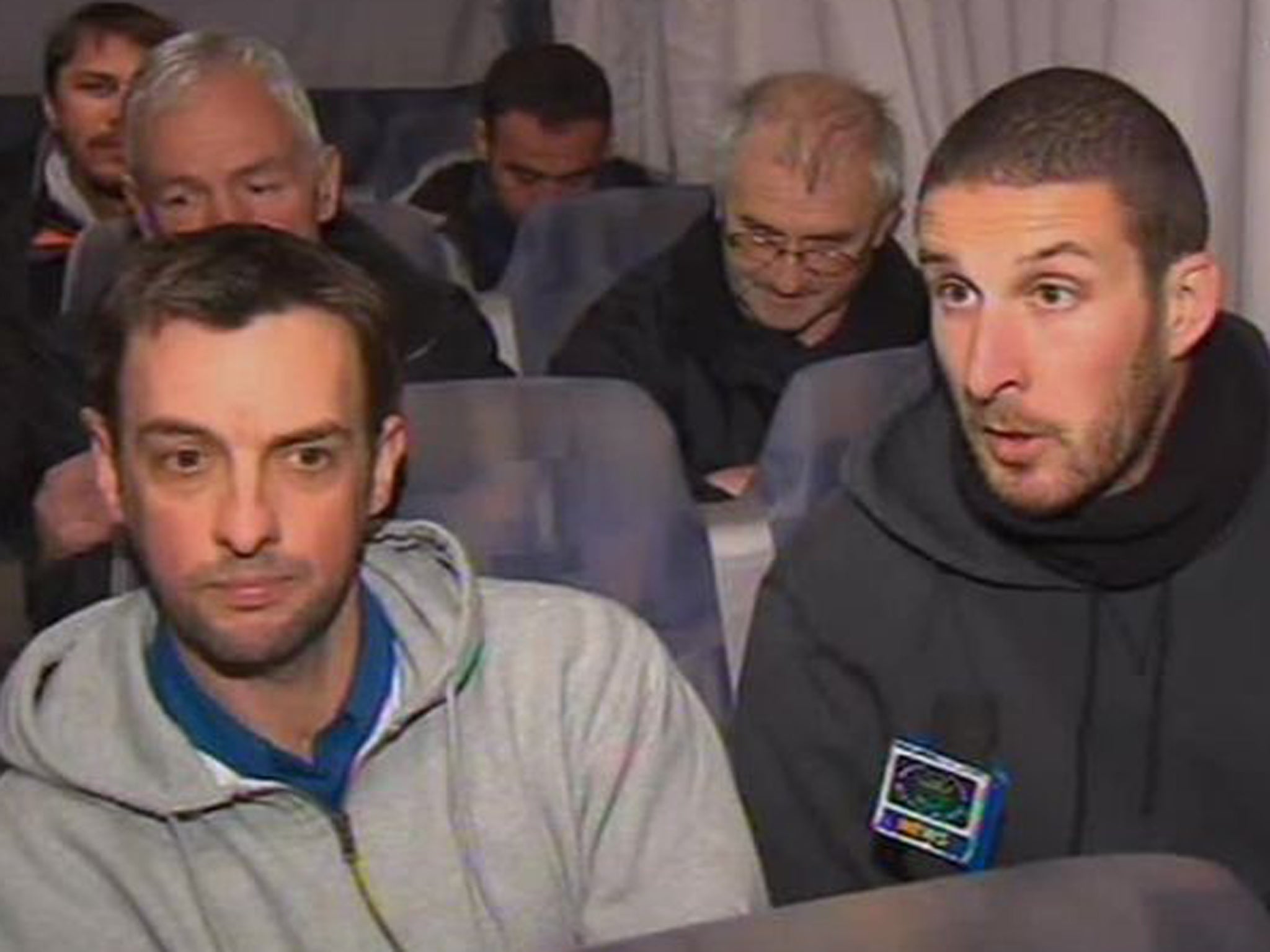'16 foreign hostages freed' in Algeria as Cameron says he wants 'robust response'
Those free include two Americans, two Germans and one Portuguese but British hostages may remain in danger

Your support helps us to tell the story
From reproductive rights to climate change to Big Tech, The Independent is on the ground when the story is developing. Whether it's investigating the financials of Elon Musk's pro-Trump PAC or producing our latest documentary, 'The A Word', which shines a light on the American women fighting for reproductive rights, we know how important it is to parse out the facts from the messaging.
At such a critical moment in US history, we need reporters on the ground. Your donation allows us to keep sending journalists to speak to both sides of the story.
The Independent is trusted by Americans across the entire political spectrum. And unlike many other quality news outlets, we choose not to lock Americans out of our reporting and analysis with paywalls. We believe quality journalism should be available to everyone, paid for by those who can afford it.
Your support makes all the difference.Sixteen foreign hostages being held by Islamist fighters who attacked a gas plant in the Algerian desert have been freed, according to Reuters news agency.
Quoting a 'source close to the crisis', Reuters said those freed include two Americans, two Germans and one Portuguese.
It is unclear whether any Britons were among the free.
David Cameron last night warned that a diplomatic response would not be enough to tackle the growing terrorist threat in North Africa and that a “robust security response” must be deployed.
About 30 foreign hostages – including 12 Britons – were thought to be dead or missing in the Sahara last night as the siege of a BP gas field in Algeria continued for a fourth day.
Yesterday morning about a dozen Islamist militants were reported to be resisting attempts by Algerian forces to end the siege. According to one report, they were barricaded in a machine room with explosives and an unknown number of hostages and threatening to blow up the industrial part of the site.
Britain has traditionally had a limited presence in Saharan Africa, but Mr Cameron's comments foreshadow a new focus on tackling terrorism in the region. The Prime Minister said Britain faces a "large and existential threat" from organisations such as al-Qa'ida in the Maghreb. British intelligence and military logistics are supporting the French action in Mali, but there are no plans, No 10 says, to deploy ground troops to the country.
The Algerian authorities said around 100 foreigners had been rescued. Two of the missing Britons are reported to have died when Algerian special forces launched an assault on part of the BP facility.
The Algerian forces encircled the raiders yesterday but apparently made no new attack. The scale of the hostage-taking became clear as Algerian sources revealed that a multinational group of about 25 to 30 militants trapped 600 Algerians and 132 foreigners from 10 countries – including 30 Britons – at the gas field in Tiguentourine on Wednesday.
According to the Algerian state news agency last night, "almost 100" of the 132 foreigners and most of the Algerians were freed when the living quarters were stormed on Thursday. This left around 30 foreigners unaccounted for. Two Britons, two Japanese nationals, one Frenchman and eight Algerian civilians are officially reported to have died. US officials last night confirmed one American, Texan Frederick Buttaccio, was killed.
The US Secretary of State, Hillary Clinton spoke with the Algerian Prime Minister Abdelmalek Sellal and said the "utmost care must be taken to preserve innocent life". A State Department spokeswoman, Victoria Nuland, said not all Americans had been freed. "We have American hostages." Survivors suggested some "hostages" were never actually captured. A French chef who hid under his bed for 40 hours said three Britons were discovered in a roof space when their quarters were freed.
David Cameron – who met the US Secretary of Defence, Leon Panetta, in London – told the Commons that the number of Britons missing had been "significantly reduced" from the initial estimate of "less than 30".
He declined to give details but the number of British workers unaccounted for was said to be at the "low end" of a scale between 10 and 20. In an emergency Commons statement, Mr Cameron made clear his irritation that Algeria had refused his offer of "technical and intelligence assistance".
A British plane landed in Algiers today to bring back freed hostages. Footage of unnamed British workers said to have escaped the siege was shown on Algerian state television.
"My heart goes out to the guys that are still there and hopefully everyone comes home safe," one man said. Eighteen raiders are reported to have died in Thursday's fighting. One was captured alive, according to the Algerian media.
Algerian security sources said the militants were mostly young men from Libya, Tunisia and Egypt but there was also one French citizen. An Algerian survivor told Le Monde that one of the raiders "spoke English with a perfect British accent".
The surviving Islamists, communicating through a news agency in Mauritania, offered to trade two American hostages for two Islamists jailed in the US. One of them is the "blind sheikh", Omar Abdel-Rahman, convicted for organising the 1993 World Trade Centre bomb plot. One expert on the region said that, in the eyes of the Algerian security services, both terrorists and hostages are " people condemned to death".
According to accounts by survivors, including Stephen McFaul from Belfast, the assault began after a group of militants tried to leave the gas field with a number of hostages in a convoy of five trucks. Mr McFaul survived because his vehicle crashed. The other trucks were destroyed by Algerian helicopter gunships – killing captors and captives alike.
Join our commenting forum
Join thought-provoking conversations, follow other Independent readers and see their replies
Comments